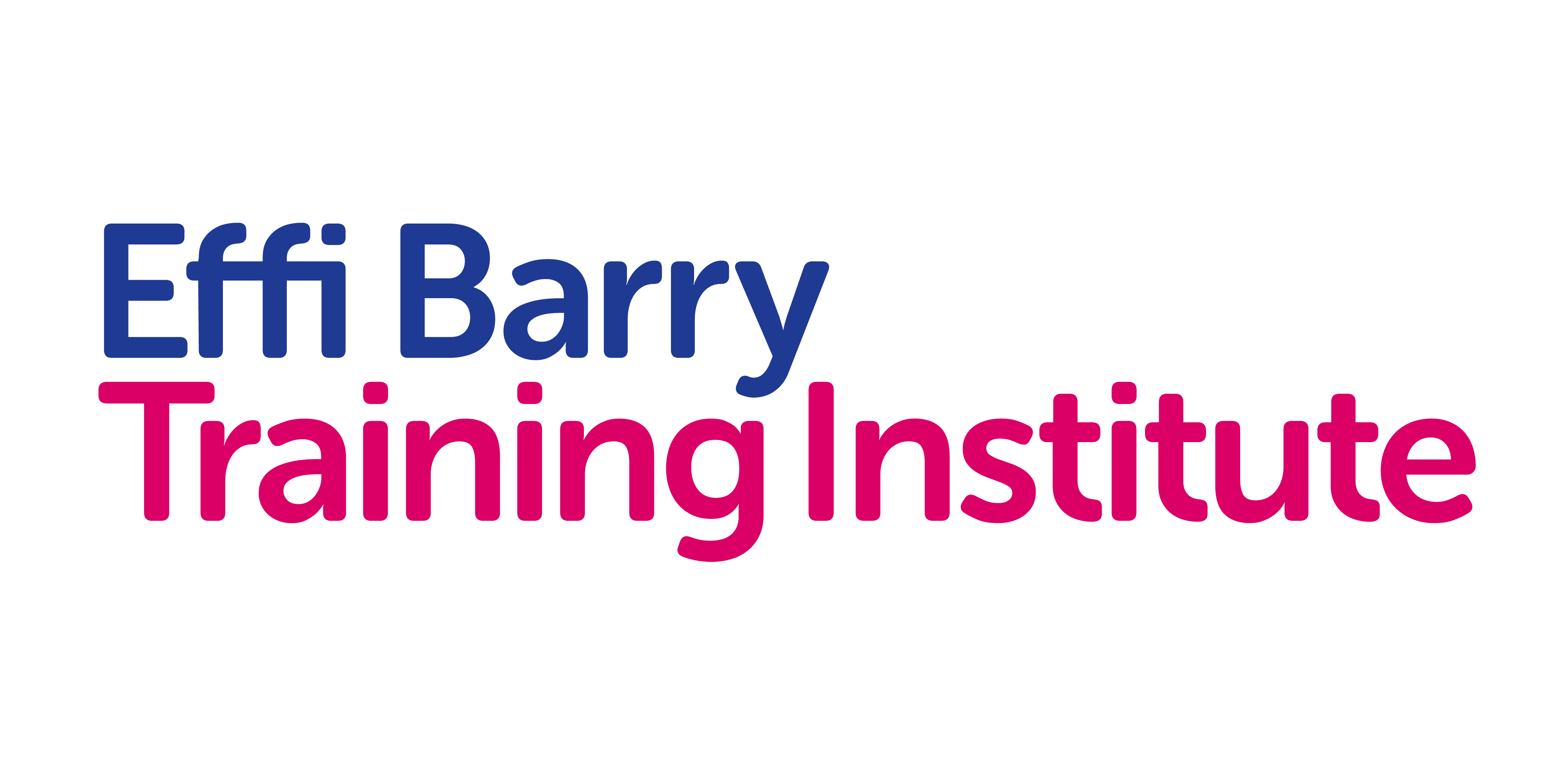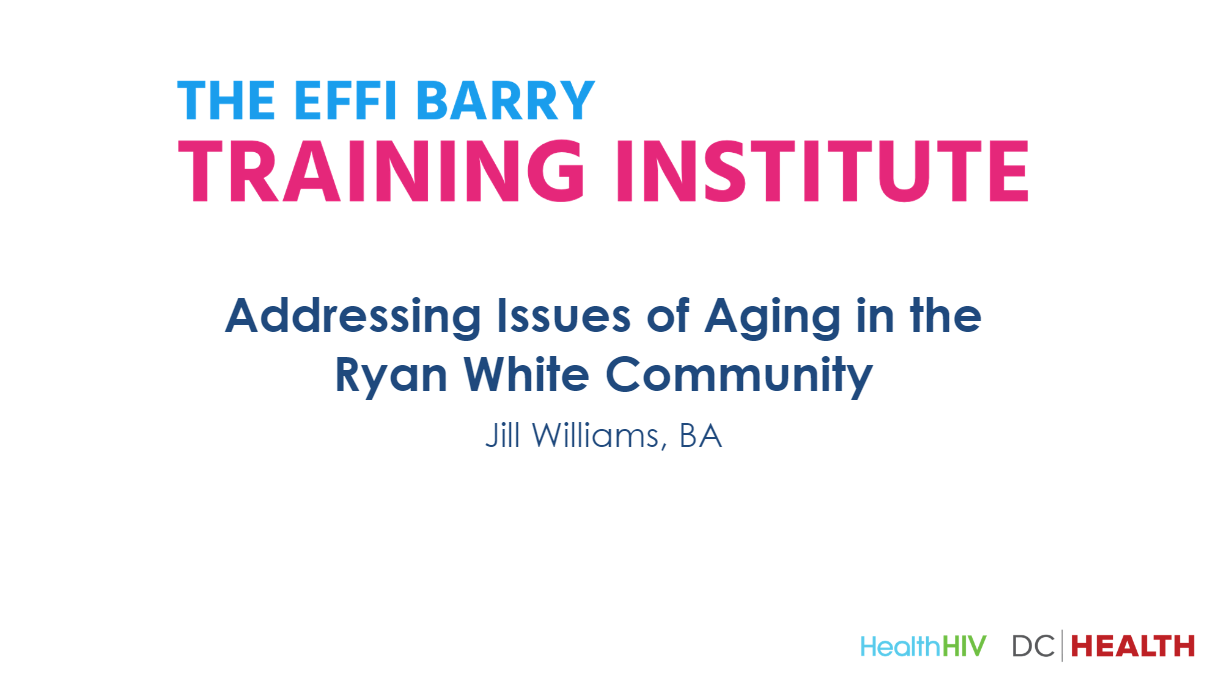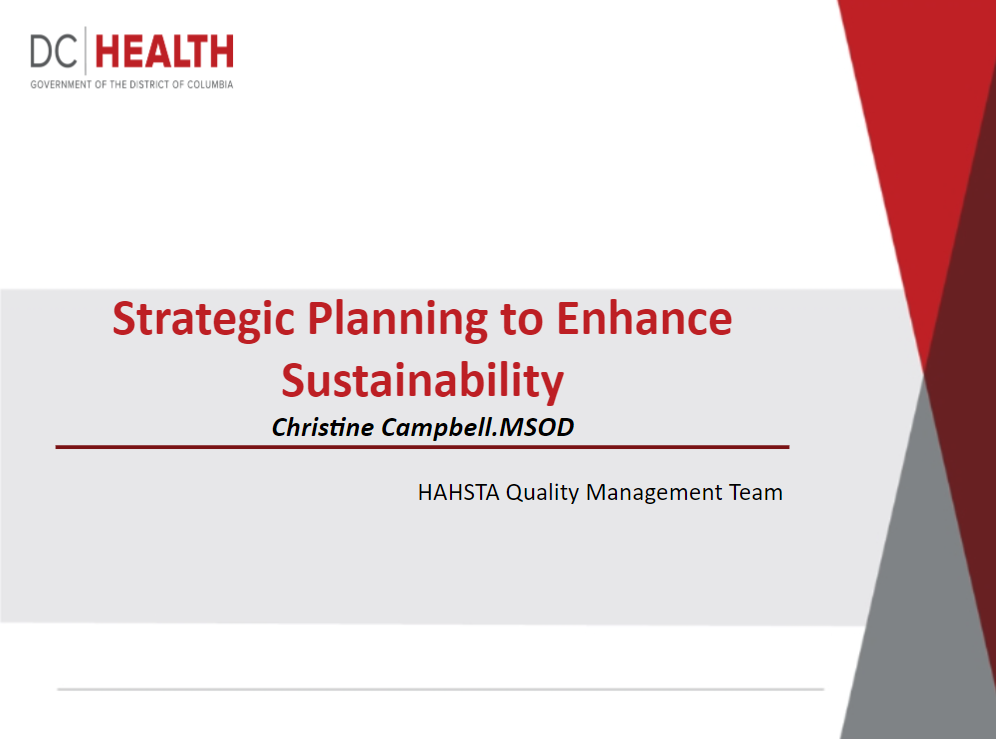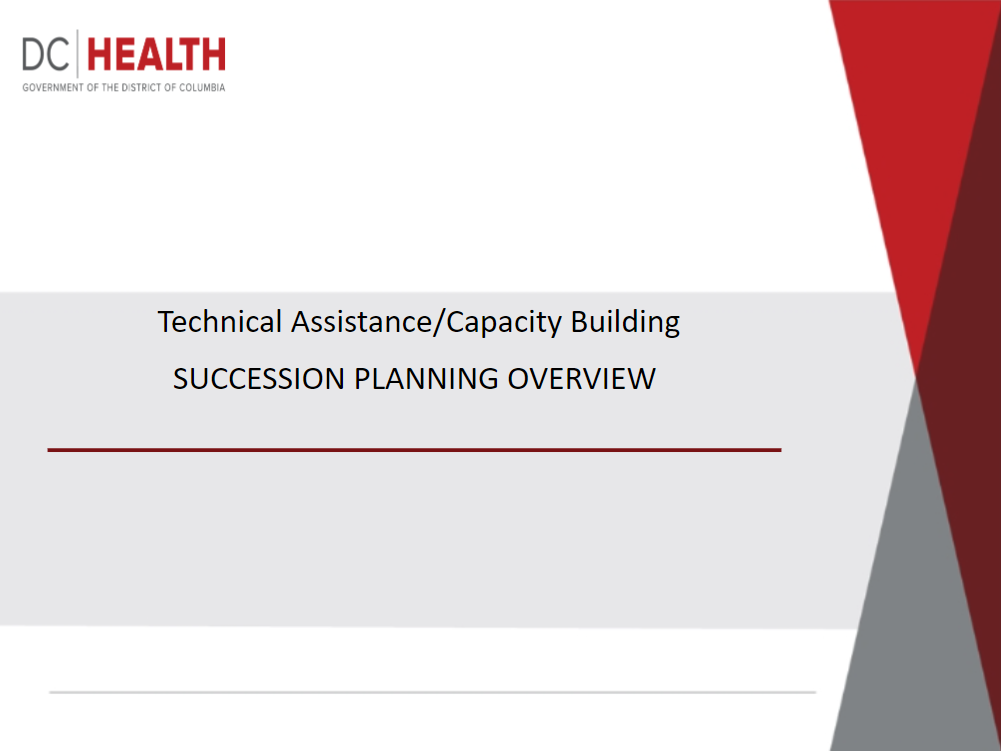

This Module is addressing the aging population of people living with HIV in the Ryan White community with a look at Washington DC. In the presentation, you will note aging, older than 50, and older than 55 are used interchangeably. In some cases that data looked at a populations over 55.
Faculty: Jim Williams, B.A.
Contact Information: HAHSTACBAPrograms@dc.gov

- This resource has been removed and archived while we modify and update our offerings in accordance with recent Executive Order 14151.


This module discusses the protocols for submitting timely and accurate monthly and closeout reports.


Strategy development is a key component to optimizing health care services for clients. Through this module, organizational leaders will learn how to maximize opportunities for organizational development and change, with an emphasis on strategic planning and development.
Faculty: Christine Campbell, MSOD
Contact Information: HAHSTACBAPrograms@dc.gov


This module identifies the importance of sustainability, income diversification and examines the sources for particular organizations.
Faculty: Ingrid Floyd, M.B.A.
Original Presentation Date: 11/29/2012
Contact Information: HAHSTACBAPrograms@dc.gov


This module discusses succession planning and attrition. The module defines succession planning, the reasons for succession planning, and the key elements of succession planning.
Contact Information: HAHSTACBAPrograms@dc.gov


This module explains the difference between implicit/unconscious and explicit bias. It identifies the influences on personal unconscious biases that impact perceptions of gender, race/ethnicity, and or cultural attributes in healthcare.
Faculty: Tamara Henry Ed.D.
Original Recording Date: 7/12/22
Contact Information: HAHSTACBAPrograms@dc.gov